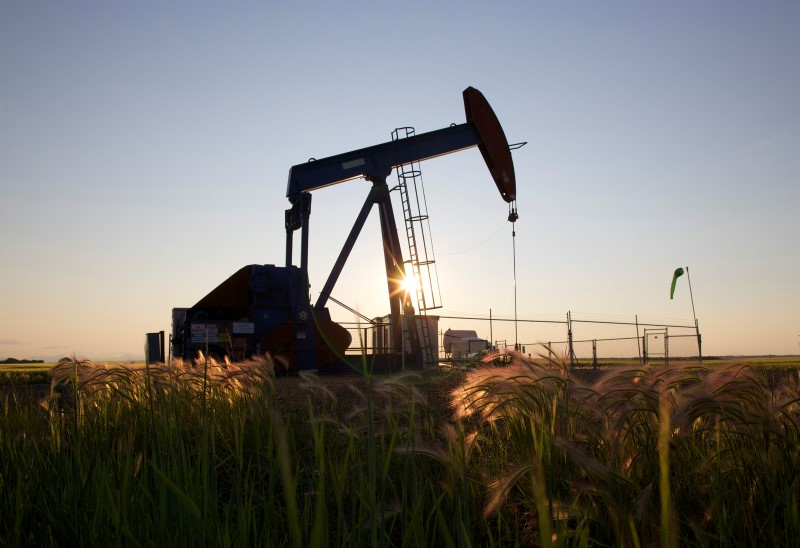By Karolin Schaps
LONDON (Reuters) - Oil prices rose by up to 2 percent on Thursday, shrugging off a smaller than expected draw on U.S. crude stocks as money and equity markets firmed after the last sweep of Brexit opinion polls raised optimism over Britain remaining in the EU.
Global markets, including commodities, have been on tenterhooks for weeks ahead of Britain's referendum on European Union membership on Thursday. The majority of results are expected to come in between 0100 and 0300 GMT following a YouGov poll shortly after voting closes at 2100 GMT.
Global benchmark front-month Brent crude (LCOc1) was trading up 93 cents at $50.81 a barrel by 1035 GMT. It touched an intra-day high of $50.90 a barrel, up $1.02 from Wednesday's close.
U.S. futures stood at $49.92, up 79 cents.
"Most market participants are positioned ahead of the Brexit voting or are waiting on the sidelines to see the final outcome," said Hans van Cleef, senior energy economist at ABN Amro.
Some of the last opinion polls published late on Wednesday, hours before voting started, showed the "Remain" campaign ahead.
This propelled sterling to a 2016 high against the dollar on Thursday while Britain's top share index rose to a two-month high. [FRX/][.L]
Oil defied bearish news that U.S. weekly crude inventories dropped by less than expected. The Energy Information Administration said on Wednesday that stocks fell by 917,000 barrels in the week to June 17, compared with expectations of a 1.7 million barrel decrease. [EIA/S]
If Britain votes to remain in the EU, the oil market is likely to switch its focus to fundamentals, returning its attention to the supply and demand picture.
"The first emerging signs in April and May that the deep capex cuts in upstream oil production have started to hurt oil production ... could turn out to be a clearly visible trend," said Bjarne Schieldrop, chief commodities analyst at SEB.
The Nordic bank lifted its 2016 Brent crude oil estimate to $48 a barrel, up from $44 previously, and raised its 2017 price forecast to $55 a barrel from $50.

Saudi Arabia's energy minister told state-owned television that the oil market was returning to balance and prices had risen in response to supply and demand edging closer to equilibrium.